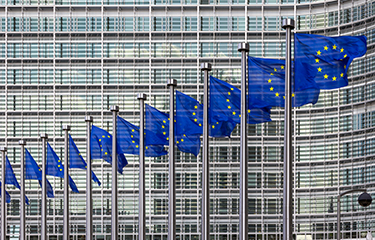A new action plan designed to accelerate the development of the organic sector, including a significant increase in organic aquaculture, has been published by the European Commission.
Overall, the plan, which is structured around 23 actions, will seek to boost the production and consumption of organic products as set in the E.U.’s farm to fork and biodiversity strategies.
According to the commission, organic farming, including aquaculture, responds to the growing societal demand for quality food produced at high environmental and animal welfare standards.
It can contribute to the protection of nature and help reverse the degradation of ecosystems, and plays an important role in the Green Deal ambition of transitioning to sustainable food production and consumption, the commission said.
“The new Organic Farming Action Plan will be a crucial instrument to set the path to achieve the targets of 25 percent of agricultural area under organic farming and of significant increase of organic aquaculture enshrined in the biodiversity and the farm to fork strategies. In addition to that, the new Strategic Guidelines for the sustainable development of E.U. aquaculture to be adopted by the commission soon, will promote organic aquaculture further,” E.U. Commissioner for Environment, Oceans, and Fisheries Virginijus Sinkevičius said.
The commission highlighted that with only 4 percent of total aquaculture production, organic fish farming is still in its early stages in Europe, but that lately, the sector “seems to be bursting out of its niche.” The EUMOFA E.U. Fish Market 2020 publication reported a 20 percent growth in the consumption of organic aquaculture products over the last five years. This was up to 48 percent in the case of France.
A substantial part of the demand is met through imports coming from such producing countries as the United Kingdom and Norway.
The action plan for the development of the organic sector puts forward actions structured around three axes: boosting consumption while maintaining consumer trust, increasing production, and improving further the sustainability of the sector.
To further boost consumption, the action plan emphasizes the importance of communicating about organic farming and its benefits. It also includes actions such as E.U. promotion campaigns or strengthening the fight against fraudulent practices, as well as improving traceability.
In line with the new organic legislation, which will enter into application on 1 January, 2022, the commission also aims to foster local and small-scale processing. It will support research and innovation as well, such as that geared toward improving animal nutrition in accordance with organic rules, for example.
Specifically, with regards to sustainable aquaculture, the commission wants a more efficient use of resources, and will draft guidelines to minimize the use of plastics and promote efficient use of water and energy.
Set for adoption next month, the new commission strategic guidelines for E.U. aquaculture will highlight organic aquaculture as one of the ways to increase sustainable production.
The commission will also encourage E.U. member states to include organic aquaculture in the ongoing review of their national strategic plans, and support this type of aquaculture production with part of the funds available under the new European Maritime Fisheries and Aquaculture Fund (EMFAF 2021-2027).
At the same time, Horizon Europe will continue to support research and innovation for organic aquaculture, while the E.U. method of policy coordination for aquaculture – the so called “Open Method of Coordination” – will continue to allow member states and stakeholders to exchange best practices and innovative approaches to further develop the segment.
Photo courtesy of VanderWolf Images/Shutterstock







